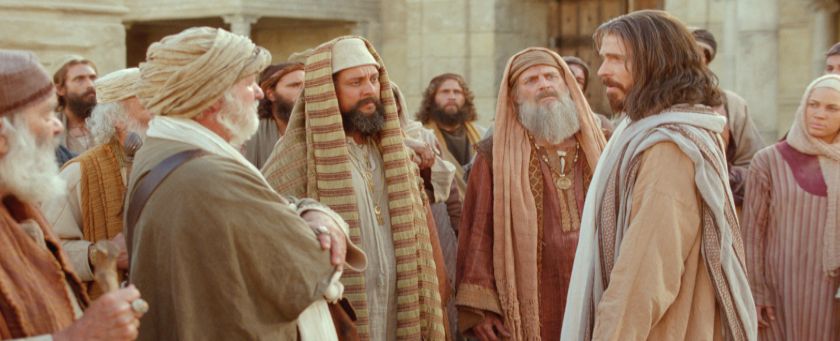Renewing the Covenant, Remaining in Faith
Twenty-First Sunday in Ordinary Time, Year B

(Audio recorded live, 22 August 2021)
Readings:
Jos. 24:1-2a, 15-17, 18b; Ps. 34; Eph. 5:21-32; Jn. 6:60-69
Today, the Word of God speaks to us of faith and devotion to the Lord. In the Book of Joshua, after the Israelites cross over the Jordan River and enter the Promise Land, Joshua, along with the people, renew the covenant with the Lord. The Lord had not only delivered the people from the bondage of Egypt, but sustained them with manna and quail in the desert for forty years. The Lord also led them to the land that was promised to Abraham, showing his faithfulness to the covenant. Joshua begins this renewal by stating his decision to follow the Lord. He leaves it up to the people to make their own decision. They say, “Far be it from us to forsake the LORD for the service of other gods…Therefore we also will serve the LORD, for he is our God.” This renewal of the covenant is a reminder of how God favors his people, but always allows them the freedom to make the decision to return the favor, to keep the covenant with God.
Our Psalm speaks of the wonderful ways in which we are blessed by God for keeping his covenant. The Lord listens to the just, he destroys evildoers, he rescues his people from distress, and saves those whose spirit is crushed. Such is the fate of those who make the decision to keep the covenant.
The passage from St. Paul’s letter to the Ephesians is often looked down upon. Many might accuse St. Paul of being a chauvinist. They make the error of reading the text literally without context. Paul is acknowledging the natural order of the world. He says that husbands are to love their wives as Christ loves the Church. “He who loves his wife loves himself,” because after marriage the two become one flesh. The entire Universe has a certain pattern to it, from galaxies, to the Sun, the Moon, and the stars. Here on Earth, this pattern includes our biological nature, which enters into a particular pattern of its own through marriage. This was not our design; it was God’s. And just as God has blessed us with a participation in his gift of Creation, so too, does he bless the lives of married couples with children. The covenant of marriage, then, is an image of the covenant between God and his people, between Christ and his Church.
And speaking of covenants, in our Gospel, we approach the covenant of all covenants, the Eucharist. Jesus, after the Bread of Life Discourse, is met with resistance from even his own disciples, who said, “This saying is hard; who can accept it?” They were unable to accept the reality that the bread Jesus gives is his flesh and blood for the life of the world. And just like Joshua, who presented a decision to the Israelites, now Jesus asks the same of the disciples who remained: “Do you also want to leave?” But, St. Peter, speaking on behalf of the rest, says, “Master, to whom shall we go? You have the words of eternal life.”
These words of eternal life continue to speak to us today as we are presented with the same question. At a time when the world seems to be crumbling around us, nations are being brought to their knees, and the Church struggles with its own scandals, Jesus asks us this question: “Do you also want to leave?” Perhaps it is good for us to hear this again and again so we can be all the more certain of our commitment to the covenant Jesus forged in his own blood. We all know the answer to this question. We stand with Peter, saying: To whom shall we go, Lord? We go to Christ. We always go to Christ. He is the source of our salvation, the food that sustains us, the word that frees us, and the one who leads us out of darkness into his own wonderful light. Sin does not win; Christ has already freed us.
So, as we prepare and continue to celebrate the New Covenant, in the Most Holy Body and Blood of our Lord, let us renew our own commitment to the sacred mission of Christ. May the communion we share help us to keep Christ at the center of our lives, to rely on him in times of distress, and to love one another as he loves us. We are stronger together because Christ strengthens us; we are wiser together because Christ enlightens us; we are holier together because Christ sanctifies us; and we are more fully human together, not just in marriage, but especially in the Most Holy Sacrifice of the Mass.





Share this post
Twitter
Facebook
Pinterest
Email